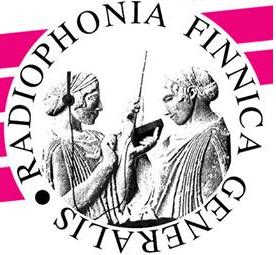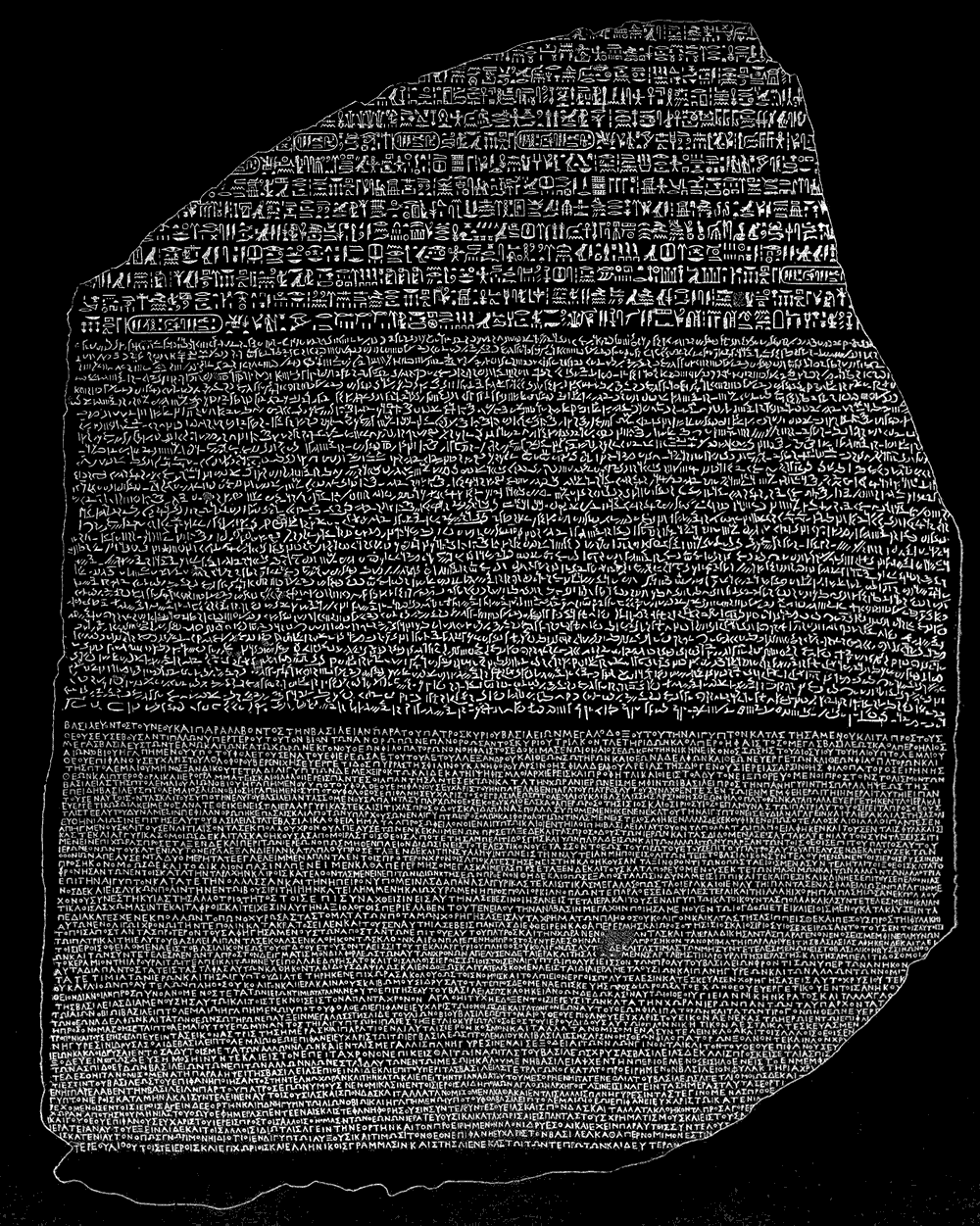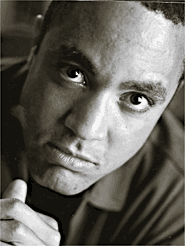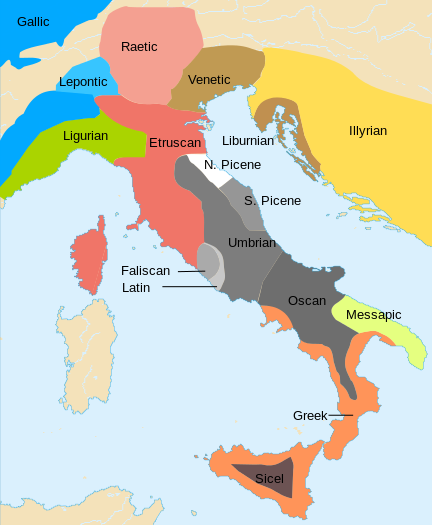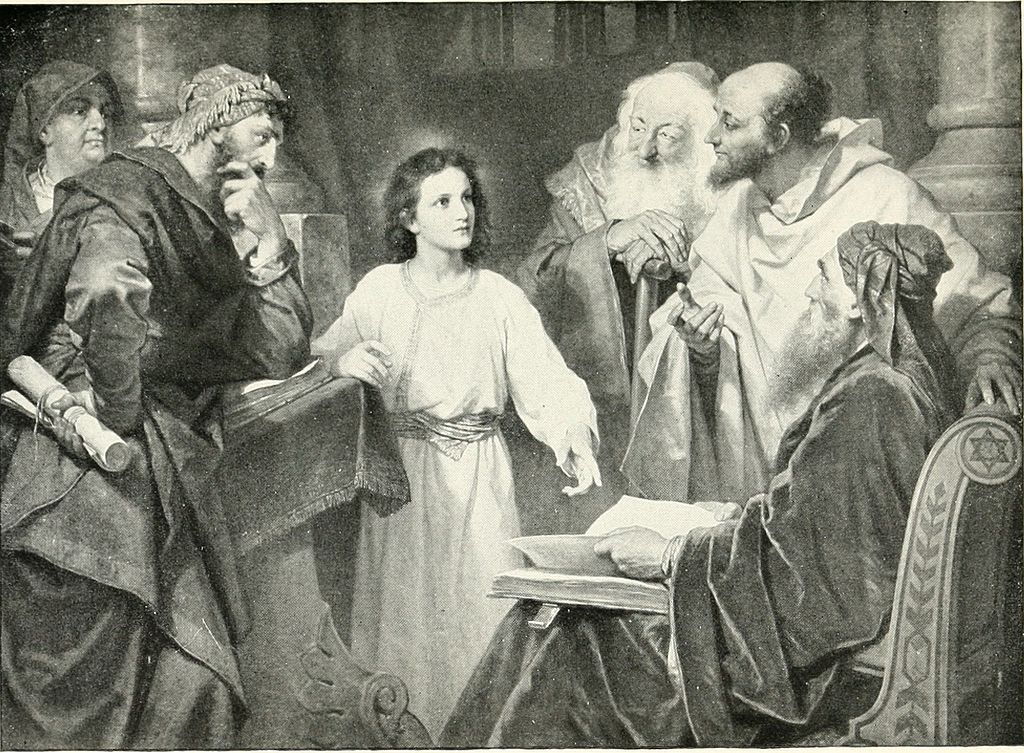|
These personal interest web-pages focus on items of personal interest to Dr. Peters and are posted on the chance they might be of interest or use to others. |
|
Overview
1 may 2018 |
An Amateur Linguist
Having acquired various languages over the years for professional and personal use, and having explored the structure of language itself for some time, I venture a modest claim to the laurel of "amateur linguist".
|
|
Quick Links
|
ASL
|
Deutsch
|
Español
• •
|
Français
• France24
|
|
Background
Bible Links:
• Arabic • Russian
|
My native language is English, specifically the St. Louis variant of Lower North Midland American English, but I have some Upper South MAE indicators in speech and usage.
I enjoy research facility and moderate speaking ability in Ecclesiastical Latin, Mexican Spanish, and standard French, and I regularly use American Sign Language. I have research ability in Italian and German and have studied Koine Greek, Biblical Hebrew, Oscan / Umbrian, and Etruscan.
Besides maintaining my modern languages and doing some readings in linguistics (especially comparative philology) I am exploring ideas for improving foreign language acquisition in the home using internet technology.
|
Rosetta Stone (196 bc) |
|
Linguistics in general
McWhorter |
Linguistics
• David Crystal, How Language Works (Avery, 2007) 500 pp.
• John McWhorter, The Story of Human Language (Teaching Co., 2004) 36 x 30 min.
• John McWhorter, Doing Our Own Thing: The Degradation of Language and Music and Why We Should, Like, Care (Penguin, 2003) 276 pp.
• John McWhorter, The Power of Babel: A Natural History of Language (Harper, 2003) 352 pp.
• Walker Percy, The Message in the Bottle: How Queer Man Is, How Queer Language Is, and What One Has to Do with The Other (Picador, 1975) 352 pp.
• Jean Aitchison, Linguistics [1972], (Teach Yourself, 1999) 245 pp.
• Stuart Chase, The Tyranny of Words (Harcourt Brace, 1938) 396 pp.
• Leonard Bloomfield, Language (Henry Holt, 1933) 564 pp.
Alphabets & Scripts
• Marc Zender, Writing and Civilization (Great Courses, 2013) 24 x 30 min.
• Joseph Navah, Early History of the Alphabet (Magnes, 1982) 211 pp. plus plates.
• Edward Thompson, Handbook of Greek and Latin Palaeography [1892], (Ares, 1966) 343 pp.
• Adriano Cappelli, Dizionario di Abbreviature latine ed italiane [1929], (Ulrico Hoepli, 2004) 531 pp.
|
|
Linguistics of specific languages
|
American Sign Language
• Clayton Valli, et al., Linguistics of American Sign Language [1992], (Clerc Books, 2005) 551 pp. • Jerome Schein & David Stewart, Language in Motion: Exploring the Nature of Sign (Gallaudet, 2002) 221 pp.
English
• Anne Curzan, The Secret Life of Words (Great Courses, 2012) 36 x 30 min. • Seth Lerer, The History of the English Language, 2d ed., (Teaching Co., 2008) 36 x 30 min.
Hebrew
• Chaim Rabin, A Short History of the Hebrew Language (Alpha Press, 1973) 86 pp. • Edward Horowitz, How the Hebrew Language Grew (Ktav, 1960) 343 pp.
Latin
• James Clackson & Geoffrey Harrocks, The Blackwell History of the Latin Language (Wiley-Blacwell, 2007) 324 pp. • Tore Janson, A Natural History of Latin (Oxford, 2004) 305 pp. • F. Mantello & A. Rigg, eds., Medieval Latin: An Introduction and Bibliographic Guide (Catholic University of America, 1996) 774 pp. • Albert Blaise, A Handbook of Christian Latin: Style, Morphology, and Syntax (Georgetown University, 1994) 157 pp., Roti trans. of Blaise, Manuel du latin chrétien (1955). • Frederic Allen, Remnants of Early Latin (Ginn, 1897) 106 pp.
Latin & Greek
• Donald Fairbairn, Understanding Language: a Guide for Beginning Students of Greek and Latin (Catholic University of America, 2011) 190 pp. • Ralph Moore, Comparative Greek and Latin Syntax [1934], (Bristol Classical Press, 1999) 224 pp.
|
|
Grammars of specific languages
FIGS
|
Etruscan
• Giuliano Bonfante & Larissa Bonfante, The Etruscan Language: an Introduction [1983], 2d ed., (Manchester Univ., 2002) 253 pp.
French
• Natalie Baccus, Grammaire française, rev ed., (Librio, no date) 157 pp., in progress.
Greek, Koine
• Clayton Croy, A Primer of Biblical Greek (Eerdmans, 1999) 264 pp. • William Mounce, Basics of Biblical Greek: Grammar (Zondervan, 1993) 459 pp. • F. Blass & A. Debrunner, A Grammar of the New Testament and Other Early Christian Literature (Univ. Chicago, 1961) 325 pp., Funk trans. of Blass & Debrunner, Grammatik des neutestamentlichen Griechisch (1896).
Hebrew, Biblical
• P. Kelly, et al., Biblical Hebrew: an Introductory Grammar (Eerdmans, 1992) 453 pp, and id., A Handbook to Biblical Hebrew (Eerdmans, 1004) 223 pp. • Thomas Lambdin, Introduction to Biblical Hebrew (Schribner's Sons, 1971) 345 pp.
Latin, Ecclesiastical
• John Collins, Primer of Ecclesiastical Latin [1985], (Catholic University of America 1988) 451 pp. • Henry Nunn, An Introduction to Ecclesiastical Latin (Cambridge, 1922) 113 pp.
Latin, Classical
Quintus Ennius tria corda habere sese dicebat, quod loqui Graece et Osce et Latine sciret. A. Gellius.
• Frederick Wheelock, Latin: An Introductory Course (Barnes & Noble, 1956) 457 pp. • Robert Henle, Latin Grammar [1945], (Loyola, 1957) 272 pp. • James Kleist, Aids to Latin Prose Composition (Schwartz, Kirwin, and Fauss, 1912) 104 pp. • Charles Bennett, A Latin Grammar (Allyn & Bacon, 1895) 272 pp. • Joseph Allen & James Greenough New Latin Grammar [1888/1903] (Dover, 2006) 477 pp. • Aelius Donatus, De partibus orationis ars minor (mid-4th c.), here.
Latin, Vulgar
• Charles Grandgent, An Introduction to Vulgar Latin (Heath, 1907) 219 pp.
Oscan / Umbrian
• Carl Buck, A Grammar of Oscan and Umbrian with a Collection of Inscriptions [1904], (Hardpress, 1994) 352 pp., plus plates.
|
|
Other Materials
|
Theology & Language
• David Crystal, Linguistics, Language, and Religion (Hawthorn Books, 1965) 191 pp. • Cyril Korolevsky [Francois Charon], (Byzantine priest, 1878-1959), Living Languages in Catholic Worship, (Newman, 1957) 195 pp., Attwater trans. of Korolevsky, Liturgie en Langue Vivante (1955). • Christine Mohrmann (1903-1988), Liturgical Latin: its Origins and Character (Catholic University of America, 1957) 95 pp. • Paul Auvray, et al., Sacred Languages (Hawthorn Books, 1960) 173 pp., Tester trans. of Avrey et al., Les Langues Sacrées (1957).
Exotics
• Breaking the Maya Code (Night Fire, 2008) 116 min. • Cracking the Maya Code (Nova, 2008) 1 x 55 min. • Secrets of the Rosetta Stone (History Ch., 2008) 1 x 50 min.
|
|
Activities
|
Intensive Latin Experiences
Other Language Study
Translations
Services
|
|
Professional reading knowledge of foreign languages
Visual languages such as ASL do not have a written form so they are not considered here. |
There are a variety of scales used to assess skill in languages. None of them is satisfactory and, most likely, none of them ever will be for language is too complex a phenomenon and is applied in too many different ways (often by the same individual) to admit of one single classification of skills.
Considering, in any event, just one context in which foreign languages are studied and used, namely, a professional approaching printed texts in his or her area of expertise (think me reading ecclesiastical documents), I suggest that, between utter ignorance of a given language (think me and Korean) and effortless understanding of a native tongue (think me and American English), there are five discernible degrees of skill that can be discerned, to wit:
A few observations:
1. This scale applies only to reading materials in one's area of expertise. For example, I confidently approach commentaries on canon law written in Latin, but a poem by Lucretius is difficult for me. A French commentary on doctrine is one thing, a French diary of a theologian something else.
2. Even within these five categories a range of reading skills exists. The transitions from Level II (Elementary) to Level III (Functional) and from Level III (Functional) to Level IV (Proficient), seem especially hard to assess.
3. As Level V (Fluent) approaches bi-legality with one's native language, the skill scale ascends asymmetrically. For example, I am confident of my ability to handle canonical texts in Latin, but I have no doubt that many Latinists (and even some canonists) are markedly more adept in Latin reading than am I. Yet all of us may be considered fluent.
|
|
Latin per Diem
|
011 Chrysostom, Priesthood, mar 2018), here. 022 Clement of Rome, Corinthians A (Greek, jun 2017), here. 012 Basil, Letter to the Young (Greek, jan 2017), here. 010 Clement, Protepticon (Greek, mar 2016), here. 010 Chrysostom, on Galatians (jan 2016), here.
Xenophon, Anabasis Homer, Illiad Virgil Eclogues
Completed
010 Pacheus, De dentium dolore (aug 2020), here. 025 Athanasian Creed (aug 2018), here. 021 Isidore of Seville, De Grammatica (may 2016), here. 005 Nicene Creed (nov 2015), here. 005 Apostles' Creed (oct 2015), here.
|
|
staging |
Père Gaston-Laurent Coeurdoux (1691-1779) was a French Jesuit missionary and philologist who, in a 1767 'Mémoire' sent to the French Academy of Sciences, anticipated by two decades Sir William Jones' assertion of a common origin for most Western languages. |
|
Materials on this website represent the opinions of Dr. Edward Peters and are offered in accord with Canon 212 § 3. This website undergoes continual refinement and development. No warranty of completeness or correctness is made. Dr. Peters' views are not necessarily shared by others in the field nor are they intended as canonical or civil advice.
CanonLaw.info Homepage & Site Directory / Help support CanonLaw.info / Original Materials © Edward N. Peters |
